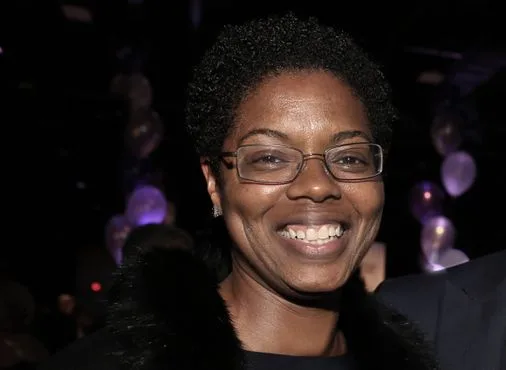
Nearly a decade ago, a group of Black professionals, entrepreneurs, and allies formed the Black Economic Council of Massachusetts, a collaborative effort to close the yawning racial wealth gap in Massachusetts. The work was in large part spurred by a startling Federal Reserve Bank of Boston report in 2015 that found the median net worth of an African American family in Boston was a mere $8.
Now, the council is set to host its fifth consecutive convention, the Mass. Black Expo, bringing together hundreds of business leaders and policymakers for a common agenda of “Building Black Wealth in the Commonwealth.”
The in-person event, scheduled from Friday to Sunday at the Boston Convention and Exhibition Center and sites throughout Massachusetts, provides networking, resource-sharing, and wealth-building opportunities for the state’s Black economic sector. The event is one tool, organizers say, to help address the wealth gap, which one analysis estimates could give the state economy a $25 billion boost over five years.
“This event is an opportunity to bring people together to see the myriad ways that we can and should build Black wealth,” said Nicole Obi, president and CEO of the Black Economic Council of Massachusetts, or BECMA. “It’s not a silver bullet path. It’s very much focused more on the things that we can do, as opposed to the barriers that stand in our way of getting there.”
The idea for the Mass. Black Expo was first conceived in 2019 when someone at a city hearing testified that they couldn’t find entrepreneurs of color to do business with, said ni, a former BECMA president who’s now the city of Boston’s chief of economic opportunity and inclusion.
“Well, if the only reason you’re not giving a contract to the Black and brown people is that you can’t find them,” Idowu recalled saying, “Then I’m going to put them all in one place and you can show up.”
The upcoming expo is the second fully in-person event since its inception. Because of the COVID-19 pandemic, the programming over the past three years has been either virtual or in hybrid form.
“This year’s expo is going to be bigger and better than last year,” Obi said. “Something that’s distinct from previous Mass. Black Expo events is the ability to really dive in deep.”
Obi said each day of the expo will have a specific theme, so BECMA “could really focus on the topic of building Black wealth for different audiences.” The first day focuses on business owners, the second on professionals and students, and the final on families and communities.
The expected attendance this year is unknown because the in-person format differs from previous years, Obi said, but attendance at the hybrid expo in 2022 reached around 2,000 visitors.
Over the three-day period, attendees can meet with Black-owned businesses, hear from elected officials and leading entrepreneurs, and attend more than a dozen panels.
On Friday and Saturday, the expo will also host the Black-Owned Pavilion, an exhibition space showcasing hundreds of businesses from across Massachusetts.
In addition to the pavilion, BECMA will also host a “climate and sustainability experience,” an interactive space where innovators can present their solutions to the climate crisis. The event will also hold its fifth electric vehicle kickstarter, a popup event that informs Black businesses on ways to tap into the state’s emerging EV industry, such as supplying equipment or installing EV stations at storefronts.
The expo’s panel topics range from building generational wealth to the intersection of artificial intelligence and entrepreneurship to making money as a social media influencer.
This year’s scheduled speakers include Mayor Michelle Wu, US Senators Ed Markey and Elizabeth Warren, US Representative Ayanna Pressley, Governor Maura Healey, Lieutenant Governor Kim Driscoll, national race scholar Andre M. Perry, and Earn Your Leisure media platform cofounders Rashad Bilal and Troy Millings.
The event closes on Sunday with “A Celebration of Black Joy” event at Grace by Nia in the Seaport, a BECMA booth at the Seaport x Black-Owned Bos. fall festival, and a “Family Fun Fest” at the Springfield Boys & Girls Club.
Brandale Randolph, founder and owner of the Framingham-based 1854 Cycling Company, presented his company’s e-bikes at last year’s event. He plans to speak on a panel and showcase more products at this year’s expo, saying it offers clear opportunities to close the region’s racial wealth gap.
Randolph reflected on what it is like to see big-name Black brands and smaller Black startups in one large space, thinking creatively about ways to generate jobs — not just for Black people, but everyone in Massachusetts. Having so many recruiters in the room, he said, can show the community that they can generate income without leaving the state.
”A lot of people have to leave Boston in order to close their own personal wealth gap,” Randolph said. “The more opportunities we show people that they can build, raise, and support a family here in Boston, the greater that gap will change.”
Jerry Epps, director of vendor diversity at Babson College, said opportunities such as Mass. Black Expo also give emerging entrepreneurs access to much-needed capital. Through last year’s expo, Epps said, he met business owners whom he connected to potential vendors, something that might have never happened if the event didn’t place them in the same setting.
“This is our Super Bowl,” he said, of the opportunity for minority-owned businesses. “We’re looking for suppliers that are going to add value to the daily operations of our companies, and this is a perfect event where we can meet those types of suppliers.”
Beyond job creation and networking, the annual expo is also a place to connect Black entrepreneurs with resources they might not know exist, said Hilina D. Ajakaiye, executive vice president of Meet Boston, the region’s tourism bureau.
In Ajakaiye’s case, the expo allows her to provide attendees with information on how to profit from tourism, Boston’s third largest industry.
“The more inclusive business sharing we have,” Ajakaiye said, “the better we’ll all be.”
Tiana Woodard is a Report for America corps member covering Black neighborhoods. She can be reached at tiana.woodard@globe.com. Follow her @tianarochon.


